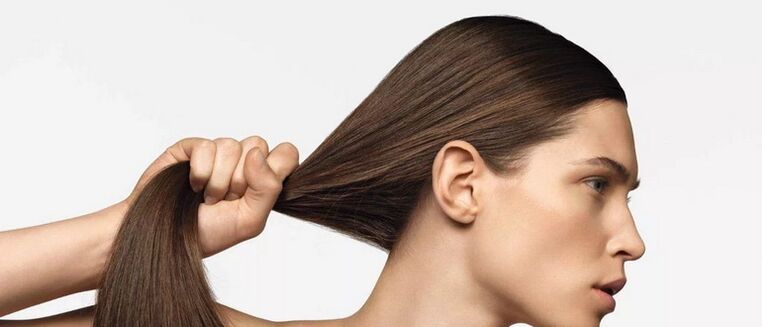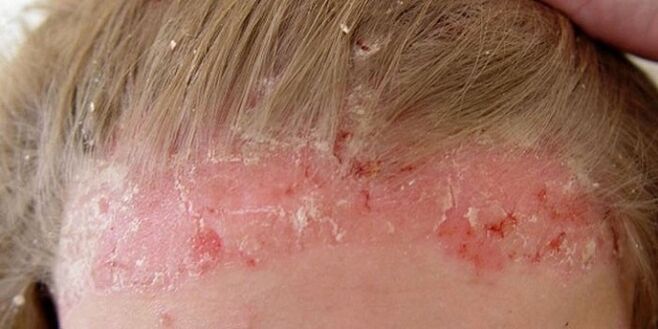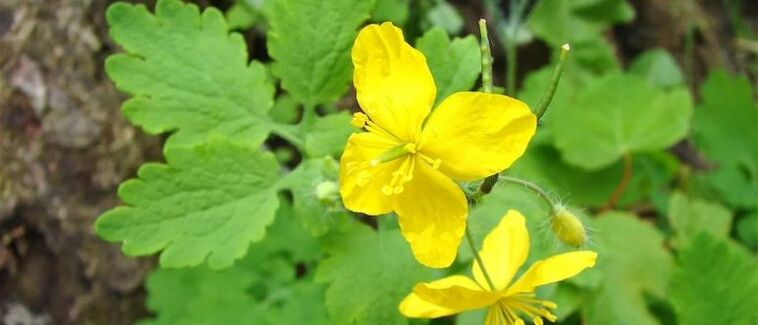Psoriasis on the head significantly reduces the quality of human life and requires a lot of effort and money to treat. The constant struggle with the symptoms of psoriasis and the feeling that you are not like everyone else causes a special psychological problem. This burden is particularly heavy for young people who do not yet have a family of their own. After all, people around you often notice that head lice are peeling their head or think a person is unclean. In fact, lichen peeling is not contagious and occurs primarily as an inherited disease.
Causes of occurrence
Scalp psoriasis occurs in children and adults. Its appearance, like the current one, is unpredictable. Scientists still do not understand why and for what specific cause psoriasis rash occurs on the human body and affects the scalp. They have found that the appearance of psoriasis on the head and other parts of the body is preceded by a violation of epidermal function. This occurs with the skin if it is exposed to external irritants, such as after using a poor quality shampoo or body gel.
It later became known that a number of factors contributed to the development of psoriasis, such as:
- malnutrition;
- alcohol abuse;
- infectious skin diseases;
- general intoxication of the body;
- hormonal imbalance;
- endocrine disorders;
- weakening of immunity;
- allergic reactions.
This is not a complete list of what can affect the severity of scalp disease.

Psoriatic elements form on the scalp, as in other localizations, in the upper layer of the epidermis, so they rarely interfere with the growth of individual hairs and provoke their loss.
If we look at them, these and other causal factors not mentioned here have one thing in common - the ability to negatively affect the metabolic processes of the skin. But this is one of the main causes of abnormal proliferation of epidermal cells.
Symptoms of different types of diseases
The following forms of psoriasis can occur on the head:
- Vulgar - another name for plaque psoriasis, is diagnosed in 90% of cases. It is characterized by the appearance of small papules and red spots on the scalp. Their surface is covered with dry silver scales that can be easily removed with nails. The elements of the rash gradually grow and then merge to form islets with scaly gray surfaces.
- Pustular - exudative psoriasis, considered the most severe form of the disease, manifests itself in small blisters with a yellow or transparent content. The skin underneath is swollen and hot. If left untreated, ulcers formed from open blisters may become infected with a bacterial infection.
- Drop-shaped - develops against the background of streptococcal infection. The elements of the rash are teardrop shaped and tend to enlarge.
How does psoriasis look on the head at different stages
The initial stage of psoriasis on the head is most often accompanied by symptoms similar to other dermatoses (coincidence with dandruff, seborrheic dermatitis, etc. ). Therefore, only a specialist can correctly diagnose the disease so that he can choose an effective direction of treatment later.
The following pathological changes can be observed on the scalp at all stages of the development of psoriasis:
- A small, itchy, papular rash appears. Its elements are rounded and red or pink. At this stage, the characteristic feature of psoriatic eruptions is the formation of silvery scales on their surface, which peel off when combed. The inflammatory process is absent, so a patient with psoriasis is only irritated by itching and mild peeling of the skin.
- In the second stage of psoriasis, which is called progressive in medicine, the growing papules unite into a single island and cover most of the scalp. The itching of the skin intensifies, leading to scratches and inflammation. In the absence of proper treatment, the infection penetrates the skin through scratches and causes the appearance of purulent pustules and yellow crust under the hair.
- In the inpatient stage, when the drugs used have the desired effect, the size of the psoriasis plaques disappears and the inflammation disappears. Due to the detachment of the whitish layer from the surface of the plaques, a lot of dandruff is observed in the hair, the itching is less intense.
- After a while, the plaques lighten on the scalp, some disappear without a trace, the itching disappears. Elasticity returns to the skin. This is how psoriasis looks like in the remission phase.

If it is not possible to stop the psoriasis during the progression stage, the skin of the head will thicken, causing it to be easily damaged. The growth of psoriatic plaques does not stop due to the appearance of new papules. When combing, huge, dead layers of epidermis remove their surface, which cannot be completely combed out of the hair.
Localization of skin disease
If psoriatic plaques have appeared on the scalp and the entire scalp has been affected, over time they may spread beyond the hair growth area to the smooth skin of the forehead to grab the area of the temple. Psoriasis can appear on the back of the head and upper neck, on the skin behind the ears, and on the lobes. This form of disease localization is called the "psoriatic crown. "
Diagnostic features
To diagnose the initial stage of psoriasis, it is not enough for the dermatologist to examine the scalp for the presence of tiny itchy papules or psoriatic plaques. Such elements of the rash are also characteristic of many other diseases, so in addition to examining and questioning the patient, differential diagnosis is mandatory.
This type of test allows you to distinguish psoriasis on the head from other dermatoses, which are also popular sites for scalp localization. It is worth mentioning here:
- seborrhea - this is the result of dandruff, malfunction of the sebaceous glands;
- rosacea - characterized by the appearance of papules and pustules on red edematous skin as in psoriasis;
- pityriasis versicolor - affects the hair follicles, causing papules around the hairs.
The symptoms of the phenomena associated with the term "psoriatic triassic" are also taken into account in the diagnosis of psoriasis. It includes three symptomatic symptoms:
- Stearin stain - if a papule or psoriatic plaque is scraped off, the surface will whiten and the scales will peel off.
- Terminal foil - the surface of the papula becomes pink and shiny after the scales have been removed.
- Local bleeding - occurs after scraping and removing plaque from a single papule or psoriasis.
The diagnosis also takes into account the presence of the Kebner phenomenon, where a psoriatic element is formed in the affected area approximately 15-20 days after skin injury. The symptom is characteristic of the progressive stage of psoriasis.
How to get rid of psoriasis on the head
The physician will develop an effective treatment plan for the treatment of psoriasis, taking into account the patient's general health, the form of the disease, and the severity of the course.
The general treatment plan includes:
- external and internal (occasional) use of medicines;
- compliance with dietary rules;
- physiotherapy classes;
- preventive hair care.
Scalp psoriasis is not dangerous except for the pustular form of the disease, so some of the procedures prescribed by your doctor can be done at home.
What pharmacy drugs help
Preparations for the treatment of psoriasis of the scalp are prescribed taking into account the stage of development of the disease:
- Progressive stage. It requires washing the head daily with a special zinc-containing shampoo, then applying a therapeutic cream or salicylic ointment to the scalp twice a day. The devices relieve itching, inflammation, help exfoliate dead epidermal cells, strengthen the skin's blood vessels.
- Standing stage. Within 2-3 weeks, 5% lactic or salicylic acid is used to treat psoriasis plaques. The solutions soften the stratum corneum and help it exfoliate, as well as help other drugs penetrate the affected epidermis. Of these, the naphthalane-based cream improves local blood circulation, softens the skin and relieves inflammation. Non-hormonal ointments containing a synthetic analogue of vitamin D3 for psoriasis, which stops the process of division of epidermal cells, contribute to their normal maturation.
- In the symptom relief phase (regression phase), the scalp is treated with juniper or birch tar-based balms, shampoos and ointments. The effect of these drugs is to improve metabolic processes and blood microcirculation in the scalp. The purified tar has anti-inflammatory, absorbent, anti-itch and exfoliating effects.
In addition to medication, homeopathic-type medications are good for those suffering from scalp during the period when the symptoms of the disease are relieved. For example, it is made from such materials:
- lanolin (animal wax), which softens the stratum corneum;
- berberine - relieves inflammation;
- Mahonia holly extract - prevents the growth of immature epithelial cells and exfoliation.
In severe scalp psoriasis, patients are prescribed hormone tablets, cleansing drops, magnesium sulfate, sodium thiosulfate, and immunomodulators to relieve inflammation.
How to cure scalp psoriasis with folk remedies
Masks based on herbs, liquid blends and decoctions used for shampooing help remove plaque from psoriasis from the skin.
Hormonal ointment with celandine
Ingredients:
- freshly taken (preferably) celandine herb - 1 tbsp. l. ;
- purified fat - 100 g.
Method of cooking: Mix the ingredients, mix thoroughly, leave for 3 days in a dark, warm place for infusion.

Result: the product softens the stratum corneum of the scalp, eliminates itching and peeling, relieves inflammation.
To use: Apply the ointment in a thin layer to the plaques for up to 5 consecutive days as the product contains an addictive hormonal component.
Mustard mask for scalp psoriasis
Ingredients:
- mustard powder - 2 tbsp. l. ;
- hot water - 2 tbsp. l. ;
- vegetable oil - 2 tbsp. l. ;
- chicken yolk - 1 piece;
- sugar - 2 pcs
Method of cooking: add the sugar, butter and water mixed with the mustard powder to the yolk while whipping.
Application: apply psoriasis mixture to the scalp, rub, put on a cellophane cap, warm the head with a towel. The procedure should take at least 15 minutes. The skin will first tingle and then start to burn. After the mask, wash the head with lukewarm water and tar shampoo. Repeat the procedure every 2-3 days for as long as the exacerbation lasts.
Result: the mask reduces itching, causes blood flow to the scalp, improves local metabolic processes, helps soften and exfoliate the stratum corneum.
Decoction for rinsing after washing
Ingredients:
- amaranth seeds - 2 teaspoons;
- amaranth leaves - 1 teaspoon;
- boiling water - 750 ml.
Method of cooking: put the seeds in an enamel bowl, pour boiling water, simmer for 5 minutes, add the leaves of the plant, heat for 30 minutes. Filter it.
To use: Rinse hair after washing with medicated shampoo.
The result: hair with psoriasis becomes easier to comb, soft and silky. In addition, the broth relieves inflammation and strengthens local immunity.
Nutrition rules
When treating head psoriasis, it is important to include foods that are a source of polyunsaturated fatty acids (mackerel, sardines, herring, game, flaxseed, spinach). Eat cereals and cereal soups (buckwheat, oatmeal, rice), vegetable stews (beets, cabbage, potatoes), fresh berries and fruits, juices, herbal teas, dairy products.
It is recommended to cook the food by boiling, baking and steaming. It is worth eating little by little, but 5-6 times a day. Excessively salty, spicy, smoked and fried foods as well as sweets and alcohol are prohibited.
How is psoriasis of the head treated with physiotherapy?
Such effective treatment as physiotherapy for psoriasis is prescribed at all stages of the disease except exacerbation.
Methods used:
- Electrosleep - improves a person's psychological condition.
- PUVA therapy - relieves inflammation, improves the condition of the scalp.
- Phototherapy - normalizes metabolic processes in the skin, helps to prolong remission.
- Physiotherapy sessions only bring the desired results with regular and correct procedures.
Hair care
Therapeutic cleansers and hair masks are recommended for the treatment of psoriasis of the scalp:
- Birch and juniper tar shampoos.
- Healing oils in the form of masks (burdock, castor, amaranth, stone, naphthalene, currant, sesame).
With psoriasis, the head can be washed daily, the point is not to damage the skin while washing until it bleeds.
Lifestyle correction
Because psoriasis is often exacerbated by stress, a good mood helps to overcome the manifestations on the head that only affect people who lead an active and healthy lifestyle every day.
A healthy night’s sleep is a guarantee of a good mood, so after a tiring day you can take a peony or motherwort tincture at night.
Psoriasis around the head is also afraid of proper nutrition, so the preparation of a therapeutic diet should be taken seriously. You can consult a dietitian for this purpose.
The course of psoriasis in childhood and the characteristics of therapy
Scalp psoriasis occurs in children in the same way as in adults, with exacerbations and remissions. For the treatment of psoriatic papules and plaques on the child's head, the doctor selects the medication taking into account the age of the small patient and the presence of concomitant dermatological diseases. The initial stages of the pathology are easier to treat, so all the procedures recommended by your doctor are performed at home.
In the event that the psoriatic elements occupy most of the head, doctors recommend that the parents place the child in hospital. Inpatient treatment is performed:
- calcium gluconate - relieves itching, swelling, inflammation;
- Vitamins A, E, D and B - strengthen general and local immunity;
- anesthetic is prescribed with restless night’s sleep.
During treatment, you should use the funds prescribed by your doctor to take care of your child’s sore scalp.
Can Psoriasis Be Cured Permanently?
So far, there is no cure that can completely cure a person from psoriasis. The most effective medications that patients can offer to temporarily relieve the rash caused by psoriasis are various dosage forms with anti-inflammatory, antipruritic, and exfoliating effects. Vitamin D3 has been shown to be effective in slowing down skin abnormalities as well as a number of physiotherapy procedures.























